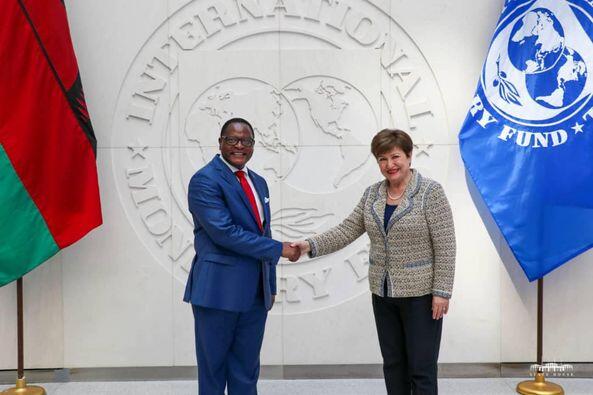
The Executive Board of the International Monetary Fund (IMF) on Monday approved a disbursement of US$88.327 million (K91 billion) to Malawi under the new Food Shock Window of the Rapid Credit Facility to help Malawi address urgent needs related to the global food crisis.
Mr. Bo Li, IMF Deputy Managing Director and acting chair, noted in a statement that Malawi is facing a challenging economic and humanitarian situation, with foreign exchange shortages and an exchange rate misalignment leading to a sharp decline in imports including fuel, fertilizer, medicine, and food.
“The emergency financial assistance under the RCF’s new food shock window would help address urgent balance-of-payments needs and mitigate the impact of the food shock,” he said.
The Executive Board of IMF also discussed a 12-month Staff-Monitored Program (SMP) for Malawi, which was approved by the Management of the IMF on November 11. It was noted that with timely implementation of the program, the SMP would help the authorities establish a track record of policy implementation, possibly paving the way to an IMF-supported upper credit tranche (UCT) program.
Meanwhile, IMF has welcomed Reserve Bank of Malawi’s commitment to rebuild its foreign exchange reserves and implement its strategy to wind down unsustainable policies including excessive use of swaps and trade credit to maintain strategic imports and other quasi-fiscal operations.
Li said that while debt is sustainable on a forward-looking basis, risks to the credit facility program are high.
“It will be critical to swiftly implement the authorities’ debt restructuring strategy, which aims to bring Malawi back to moderate risk of debt distress in the medium term.
“The credible process underway to restructure the authorities’ debt to commercial creditors, which in itself would restore debt sustainability albeit with high risk, is welcome. Swift progress is also needed on the reprofiling of official bilateral debt. A concerted effort among the authorities, their creditors and the international development partners will be crucial to ensure a successful implementation of the debt restructuring strategy,” said Li.














